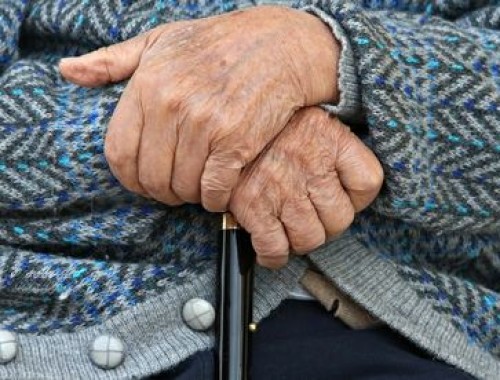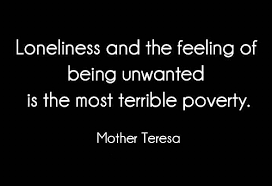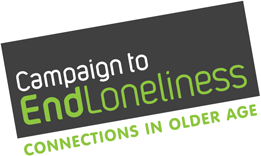End Loneliness

Posted: 17th Dec 2014
End loneliness
As Christmas approaches, not everyone will be among loved ones but individuals and authorities can all do their bit to help.
At this time of year, the majority of us will make more of an effort to connect with our family and friends. How many of us though spare a thought for those who are sadly without such companionship. A recent BBC poll revealed that 10% of those aged over 65 expect to spend Christmas mostly on their own, and using established research into the effects of loneliness, it’s estimated that 1,100,000 older people in the UK feel lonely all or most of the time.
This year in particular we have seen more awareness about the need to help people who spend Christmas alone; loneliness is a serious public health issue that needs to be addressed all year round.
Loneliness has been linked to the development of a number of serious chronic health conditions, including depression, high blood pressure and dementia. It is recognised that people who experience loneliness are more likely to smoke and drink too much, and less likely to exercise. Loneliness is therefore directly connected to poor health, and causes some of the behaviours that can harm our mental and physical health.
At the Campaign to End Loneliness they are often asked what can be done all year round to address loneliness, both by individuals who are experiencing it and also by those who hold the purse strings for health and care.
What steps can be taken to avoid loneliness
- Take up a new activity. Loneliness is a completely normal human emotion. Joining social or educational groups has been shown to really work as a way of addressing this for many people, especially if you can look for activities that are based around your current or previous interests.
- Talk to someone about how you’re feeling.There is a lot of stigma attached to loneliness, so it is incredibly hard to admit that you are feeling lonely. However, loneliness is often caused by loss (of loved ones, work, confidence) or transitions outside of our control (the onset of poor health, having to give up driving). It is important to recognise that feeling lonely is not your fault and that there are people who are ready to talk to you about how you are feeling, and offer support. This person could be your GP, or it could beSupportLine (which is for all people, of all ages), the Calm Zone (for men), or The Silver Line (for anyone aged 55 or over).
- Volunteer. Helping older people in your community who might be experiencing loneliness is often simple, easy and enjoyable. If you love reading, you could lead atelephone-based book group for housebound older people; if you care about helping the most in need in your community you can make sure that someone returning from hospital has milk in the fridge and a friendly face to welcome them; or if you believe in the healing power of holidays, you can help people with dual sensory loss to take a break. Many national charities working with older people will have local branches or partners, including Age UK and Contact the Elderly. The Campaign to End Loneliness invites any organisation working to tackle loneliness to join us and currently works with more than 730 organisations across the UK, all committed to doing something about loneliness – and all in need of support and volunteers.
- Reach out to those around you – even if they are not lonely.Last week Radio 5 Live launched a #Take10 initiative to encourage listeners to think about who they could spend 10 minutes talking to. Sports people, famous presenters and listeners all responded, pledging to call old friends: a simple, short conversation can go a long way
- Identify those most at risk of loneliness.The government needs to keep its promise to identify people who are experiencing loneliness, or who are at risk of loneliness, across our population. Some charities and local authorities have identified those most at risk of isolation by looking in depth at 11 common factors – such as whether people are bereaved, single pensioners or visually impaired. Other organisations are developing similar indices for loneliness. If these were available for all local authorities, councils would be able to easily identify those most at risk of loneliness and isolation and focus help, funding and charities to their door. This is needed nationally to make sure that local authorities are truly reaching those most at risk and the only organisation that can provide for this is the Department of Health. Without measuring loneliness more widely, millions of people will be overlooked.

- Local loneliness plans.Almost half (49%) of health and wellbeing boards in England, which are responsible for the health needs of local people, have yet to recognise loneliness in their strategies and have not set out how they plan to address this. Those who have acknowledged it as an issue are now starting to plan a local response which could involve prioritising the things that help people stay in touch with friends and family, such as rural public transport; or they might encourage GPs to work with local charities to link them up with patients who are chronically lonely and need extra support. Some areas have invested extra money specifically to help people who are lonely, such as Calderdale, where £1m from the clinical commissioning group and Calderdale council has been directed towards community organisations to help those who are lonely. This will fund activity clubs and befriending support, and the council believes that the benefits should include more social interaction and, as a result, less need for services, a reduction in GP calls and admissions to hospitals, care homes and carers’ services.
- Measure what works.There are many triggers for loneliness, including bereavement, loss of mobility, and living on a low income. Addressing loneliness in a local area will therefore take time and require a variety of services and support. But with squeezed budgets, local authorities need to know which services are most effective at reducing loneliness. Past research has shown that setting up local groups around shared interests can be effective, although one-to-one support is also important. Services should be supported to measure the impact they’re making on loneliness using theCampaign to End Loneliness’s forthcoming loneliness measurement tool, or they could undertake research like Cotswolds district council, which ran focus groups and in-depth interviews with residents aged 65 about how loneliness affected their physical health and emotional wellbeing. The council is now exploring new ways to improve community transport and respite for carers, to enhance existing befriending schemes and explore in more depth how to help older people access IT to enable them to communicate with family and friends.


